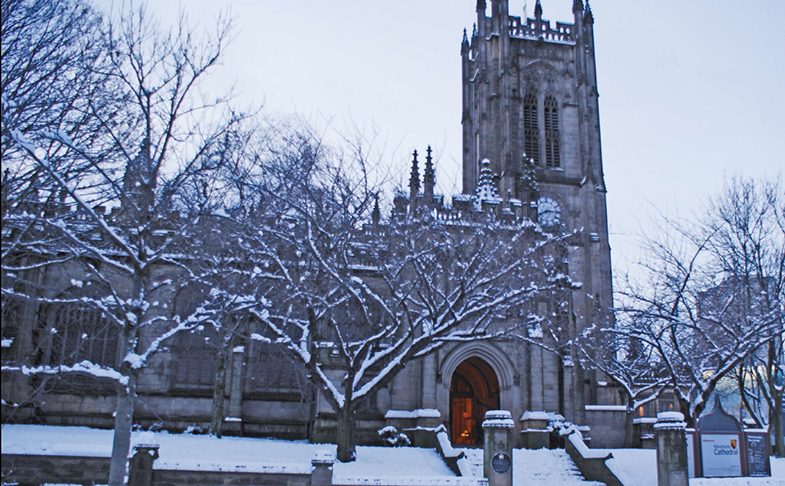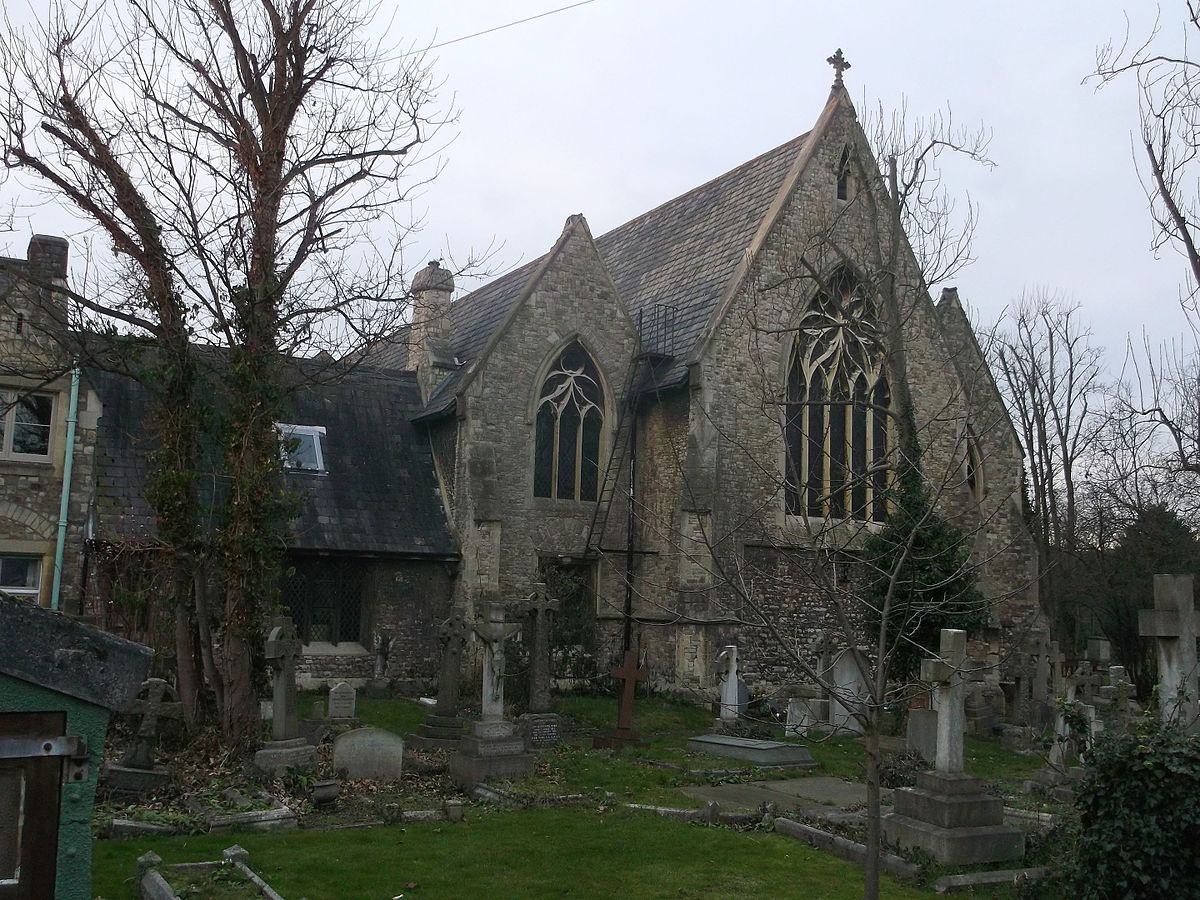I published the original version of this obituary almost two years ago, when it was simply a slight curiosity about some fairly well connected upper-class English Catholic converts. The Bellasis surname crops up every so often in some of the weddings, and more specifically so does that of Mrs. Dalglish-Bellasis. The Catholic Who’s Who and Year-Book of 1908 helped a little bit with its entry on Eliza Bellasis’s son William
Dalglish-Bellasis, William — son of Serjeant Bellasis and brother of the Lancaster Herald; educated at the Oratory School, Edgbaston; is a Director of the Cornbrook Brewery Company, Ltd.; married, first, Miss Mary Walmesley, and secondly, Mrs Dalglish, widow of J. Campsie Dalglish, of Wandara, Goulburn, New South Wales. Mrs Dalglish- Bellasis is numbered with her husband among the “founders” of the new Cathedral. Her eldest son by her former marriage, Mr Alexander Dalglish, married (1897) Mary Josephine, daughter of the Hon. Joseph and Mrs Maxwell Scott, of Abbotsford, and great-granddaughter of Sir Walter.
What it didn’t throw up immediately was very slight family connections, and more to the point family connections from two very different branches that only became apparent nearly sixty years later. Amongst the mourners are members of the Bowring family, a Miss Lescher, [though which one is unspecified], and of course Mrs Dalglish- Bellasis. Lewin Bowring C.S.I. (son-in-law) is one of the sons of Sir John Bowring, and is a second cousin of Hugh Mulleneux (1841 – 1921)’s wife Fanny. Hugh is Adeline and Joshua Walmsley’s nephew. In one of those pleasing twists of fate, William Dalglish-Bellasis, Lewin Bowring’s brother-in-law turns out to be married to another cousin. In this case his first wife Mary Walmesley , who is completely un-related to Sir Joshua and Adeline Walmsley, but is the grand-daughter of Joseph Francis Lescher (1768 – 1827). He is Harriet Grehan [neé Lescher]’s uncle, and Harriet is of course 3x step-great Granny.
William Garnett was the Tory M.P. fo Lancaster between 1857 and 1864, and the family were Lancashire cotton merchants.
Obituary of Eliza Jane Bellasis, 27 Oct 1898
We regret to have to record the death of Mrs. Eliza Jane Bellasis, widow of Mr. Serjeant Bellasis, on Friday, the 21st inst., at her residence, 22, Prince of Wales -terrace, Kensington, W. The only daughter of William Garnett, of Quernmore Park, Lancaster, and Lark Hill (now Peel Park) Salford, she was born in 1815, and was consequently in her 84th year. She died on the 63rd anniversary of her wedding day, having been married on October 21, 1835, at St. Peter’s Collegiate Church (now Cathedral), Manchester.

After various conferences with Mr. (afterwards Cardinal) Manning, she followed her husband into the Church in 1851, being received by Father James Brownbill, of the Society of Jesus. During her brief last illness she was attended by Dom Sweeney, O.S.B., of Bath, and by her eldest and youngest sons, both priests. The funeral took place on Wednesday last, the 26th inst., at St. Mary Magdalen’s, Mortlake. High Mass of Requiem was sung at 11 a.m, by the Rev. Michael Fanning, Administrator of the Pro-Cathedral, the Rev. Richard Garnett Bellasis assisting as deacon, and the Rev. Henry Lewis Bellasis as sub-deacon. The Rev. Charles Cox conducted the choir ; Dom Sweeney and Father Hogan were also present in the sanctuary, and former acting as master of ceremonies. The mourners were Mr. Edward Bellasis (son), Mrs. Edward Charlton, Mrs. Lewin Bowring, and Miss Clara Bellasis (daughters), Mrs. Dalglish-Bellasis (daughter-in-law), Mr. L. B. Bowring, C.S.I. (son-in-law), Commander Edward F. B. Charlton, R.N., William L. S. Charlton, George V. B. Charlton and Lieutenant Vincent L. Bowring, R.N. (grandsons), Miss Mary T. Bellasis, Miss Elise J. Charlton, and Miss Edith M. Bowring (granddaughters), Mrs. W. J. Palmer (niece), and Messrs. R. Oliver, and C. Oliver (cousins). Among others present were Lady Clifford, Mrs. West, Miss O’Donnell, Mrs. Barry Farrell, Miss Lescher, and Mr. E. R. Crump. Mr. Dalglish-Bellasis was unable to be present owing to indisposition.

The Rev. Father William Kerr, S.J., said a few words at the close of the Mass, taking for his text : ” Thou bast loved justice and hated iniquity, therefore God hath anointed thee with the oil of gladness above thy fellows. “ The first thing that it occurred to him to say with regard to the excellent woman whose loss they deplored, was that hers had been a happy life and he for one could not grieve over so happy a death. God led souls to Him in divers ways. It was her lot to be blessed in her saintly husband, blessed in her family (no less than five of whom were in religion). Not that she never suffered. None could know what interior trials those whom the Lord loved underwent. It was suffering (the loss of a child) that led her and her husband into the church. Both had sprung from Protestant families in the North, of the old school, with no leanings to Catholicism, but with prejudices against it. Yet once a Catholic how zealous was she, as well as her husband, for Catholic interests. In season, and (one might almost say) out of season, she was the valiant woman, ever active in dissipating error and falsehood about the Church. Yet she could show herself the good Catholic she was without offence to those without the fold. A woman impatient of wrong-doing and sayings full of charity and alms deeds, one who did her duty lovingly and bravely in that station of life to which she was called, she aimed, as she told the Benedictine Father who knew her well in her later years, at making Almighty God the centre of all her actions.
And for 25 years a widow, she remained to the last the living centre of her family ; to her latest hour she was unselfish, and she thought of others rather than of herself. Her natural gifts and acquirements insured for her a wide influence beyond the circle of her home. That home his own parents had known and loved, and so he thought he had some sort of right to speak about her now that she was gone. What such a loss was he knew by experience, and he could confidently tell them that mourned that day what he had found in his own case, that very soon their sorrow would pass, and their joy remain. Joy was the key-note of her life, and they would meet her again joyfully, if they were worthy, ” among the spirits of the just made perfect. “ R.I.P.
The above text was found on p.27, 29th October 1898 in “The Tablet: The International Catholic News Weekly.” Reproduced with kind permission of the Publisher. The Tablet can be found at http://www.thetablet.co.uk .